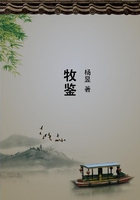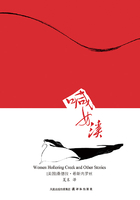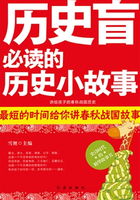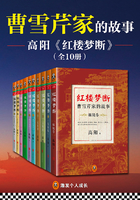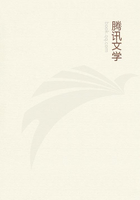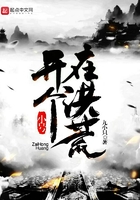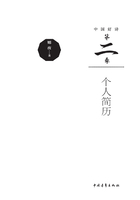In English he had read histories,making notes,and discussing the results with his father in morning walks through the green lanes near Hornsey.He had read Hume,Robertson,and Gibbon;Watson's Philip II and III,which particularly charmed him by the accounts of the revolts in the Netherlands;Rollin's Ancient History,Hooke's History of Rome,Langhorne's Plutarch,Burnet's Own Time,the Annual Register,and Millar's English Government,besides Mosheim,M'Crie's Knox,and Sewell's Quakers.His father liked,he says,to put into his hands books illustrative of the struggles of energetic men.He read Anson and other voyages for this purpose.In a purely imaginative direction he was allowed more scanty fare.He was,however,devoted to Robinson Crusoe,read the Arabian Nights and don Quixote,Miss Edgeworth,and Brooke's Fool of Quality;admired joanna Baillie's plays,and was fascinated by Pope's Homer.He was attracted by Scott's lays,and some of Campbell's lyrics,but cared little for Shakespeare,and could make nothing of Spenser's Faery Queen.He attempted little Latin and no Greek composition;but he wrote a few childish 'histories,'and a little English verse.In purely literary training he was hardly above the average of clever boys.This gives his intellectual state at the age of twelve.During his thirteenth and fourteenth years he was initiated in philosophical studies.He continued to read classical literature,but was now expected to understand the thought as well as the words.He began logic by reading Aristotle,some of the scholastic treatises,and especially Hobbes's Computatio sive Logica.His father lectured him upon the utility of the syllogism.He made a careful study of Demosthenes,Tacitus,Juvenal,and Quintilian,and then advanced to Plato.To Plato,as he considered,he owed an especial debt,being greatly impressed by the logical method,though caring little for the more mystical or poetical doctrines congenial to those who are generally called Platonists.His faculties were also stimulated by helping his father in the proofs of the History of India,with whom also in the year 1819he 'went through a complete course of political economy,'first reducing to writing his father's oral expositions,and then carefully reading Ricardo and Adam Smith.
This,he says,ended what could properly be called his lessons.The whole narrative is curiously characteristic of father and son.No one could have devoted himself more unreservedly to the education of a son.While working hard for the support of himself and his family,James Mill spared no trouble to do also the whole work of a schoolmaster.The boy prepared his lessons in the room in which the father was writing,and was constantly interrupting him for help.The father submitted,but unfortunately could not submit good-humouredly.He was 'the most impatient of men,'and the most rigorous of martinets.He did not,it seems,employ the birch,but found an equivalent in sarcastic reproaches.He was angry when his pupil failed to understand him for want --not of industry but --of knowledge,and guarded against cherishing conceit by humiliating language.When John was to leave the family,the father thought it necessary to explain that he would find himself to have learned more than other lads.But,he said,you are not to be proud of it;for it would be the deepest disgrace if you had not profited by the unusual advantage of a father willing and able to teach you.Education,like other things,was evidently a matter of sanctions;and the one sanction upon which the teacher relied was the dread of his disapproval.The child was driven,rather than attracted by sympathetic encouragement.John Mill had also to teach his younger brothers and sisters,both at this and till a much later period.Mill records his conviction that their plan (suggested probably by the Lancasterian system,in which the father was so much interested)was both inefficient and a bad moral discipline for teacher and taught.When Place went to visit Bentham and the Mills at Ford Abbey in 1814,he found the system at work.The children were regularly kept at their lessons from six to nine,and from ten to one.Their dinner had been delayed one day till six,because the girls had mistaken a word,and John,their teacher,had not detected the mistake.Place thinks that John is a 'prodigy,'but fears that he will grow up 'morose and selfish.'(4)That anticipation was happily not verified.The health of the other children,however,appears to have suffered;and,although John speaks with the warmest appreciation of his father's character,it is evident that he felt more respect than filial affection,and that,in spite of close intellectual intercourse,there was a want of such personal confidence as gives a charm to the relation in happier cases.If I cannot say that I,like his younger children,'loved him tenderly,'says John,'I was always loyally devoted to him.'(5)That loyalty is shown unmistakably by every reference,and the references are very frequent,that Mill made to his father in his writings.
Mill's own estimate of the result of his education is noteworthy.

